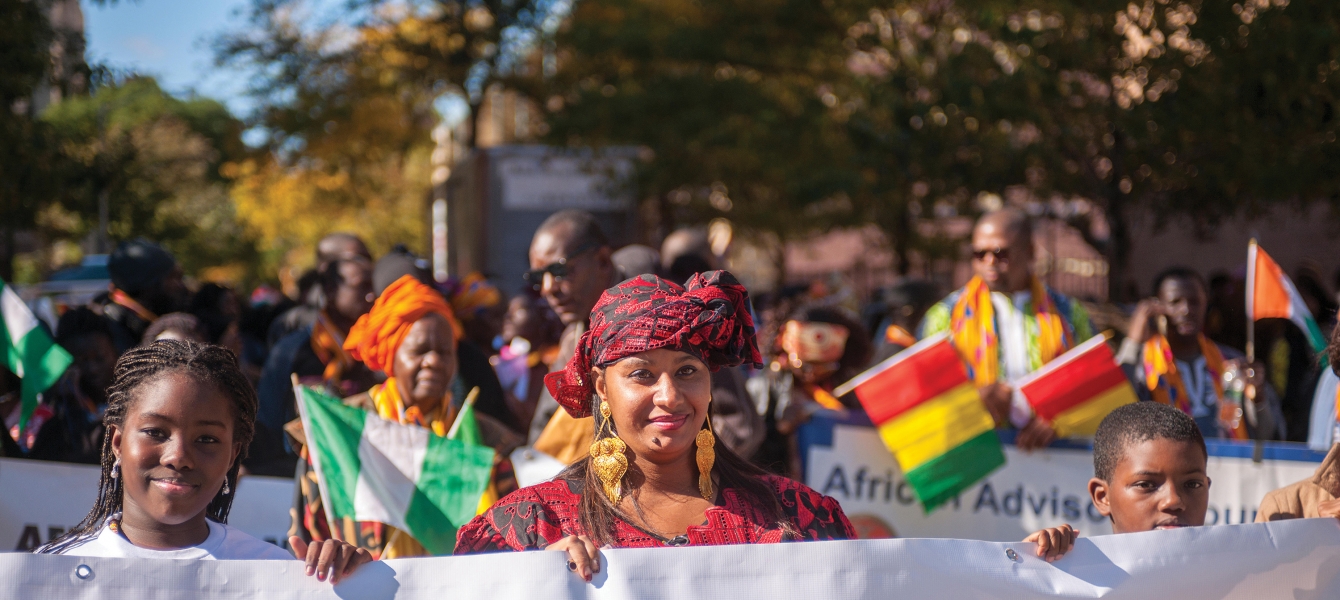Africans have a long history of migrating for various reasons. From the days of tribal wars that displaced whole tribes in Southern Africa in the 1800s to economic migrants crossing over from Nigeria to Ghana in the 60s. This leads us to the current generation of Africans who have left the continent entirely seeking better training and work experiences abroad.
However, a critical and relevant topic that is sometimes overlooked in this discussion is how many people wish to return home. Hundreds of thousands of young Africans in the diaspora are returning to Africa daily, leaving their “comforts” in the West. In fact, in all of my years living and working in the West, I have yet to encounter a young African professional who does not aspire to return to the continent one day.
The African Union (AU) defines the African diaspora as “those of native African descent living outside the continent, regardless of citizenship or country, who are eager to contribute to the continent’s development and the formation of the African Union.”
Also read: Mama Ashanti Restaurant; Kenya’s Home For West African Cuisine
So, why are a growing number of young Africans leaving the West? This generation does not want to work for a wage, despite systemic constraints that hinder many from ultimately reaching their potential abroad. They want to know that what they’re doing is worthwhile and makes a difference in the lives of actual people. They wish to take part in the continent’s renaissance.
Culture shock
The moment most Africans land on foreign lands, they are hit with a shock to the system. Yes, everyone expects some form of change, but the western world tends to leave many overwhelmed. I recall my first year at a University in England; I spent countless hours staring out of the window, trying to take in the different environment. This was not an easy task as I had to juggle to fit into my new normal. You are faced with primary challenges, like where to find familiar foods you are used to.
I found a West African shop that sold a few products from back home, which made such a psychological difference. This was the proverbial taste of home, I guess. Now put yourself in the position you do not find such a crutch that helps you connect with familiar flavours. One has to try and acquire certain tastes, and this doesn’t come easy. It is no surprise some Africans suffer from depression and end up caught up in drugs and alcohol abuse.
All countries have different ways of doing things, and it is these minor differences that add up to a vast difference that can make one feel out of place. Back home in Africa, Sunday church is the norm; it is a practice that most households take part in. Now imagine yourself in a society where Sunday is just another day to catch up on your laundry, housework and grocery shopping. This will drive them up the wall for an avid churchgoer, leading to a social disconnect with their adopted homeland.

A section of Africans in the diaspora. [Photo: UN]
Shift in Dynamics
Before the rise of social media, the African perspective was never shared with the rest of the world. This is the case even though Africa had good conditions for effective professional development. This lack of visibility discouraged many young professionals from seeking opportunities on the continent. Africa’s positive growth and success stories were not widely publicised on mainstream media. Contrary to what some may think, African is a place full of opportunities, particularly for talented ex-pats. On the commercial side, for example, qualified personnel are in high demand in various fields. And the professional diasporans’ functional profile is a valuable asset. This information is finally reaching a wider audience, and some are acting on it. Increasingly young Africans are leaving their lives in the West behind and breaking down barriers in their homelands.
Once the diaspora population land, they may face harsh realities on the ground. Government salaries are sometimes a quarter of what they were previously earning abroad, and working conditions are often not the same. Face with constant power outages, inadequate roads, poor healthcare systems, a lack of adequate drinking water, corruption, crime, and the high cost of conducting business are factors affecting many people’s lifestyles.
Also read: Why African Giant Rats Are A Delicacy In Nigeria
There is no going back.
Despite such formidable obstacles, many of those who have returned home like me, there is a strong belief that they made the correct decision. Those who are on the ground now will grasp the best opportunities first. There are opportunities to turn the tide around, and the more skilled Africans return, the better the prospects are for the African people. Africans are returning home from abroad, whether for patriotic or family reasons or simply because of the continent’s growing opportunities.
Final word
While the African diaspora’s role in the continent’s development has expanded dramatically over the last decade, few of these experiences have been chronicled. We hope that the Homecoming series would elicit a more extensive discussion about those who return to Africa. We also intend to educate those in the diaspora considering returning to Africa and those who are already on the continent on how they might assist in the reintegration of their brothers and sisters. Finally, the series’ goal is to give a neutralise to the dominant narrative about Africa and migration. The idea that Africans only leave Africa and never return.








